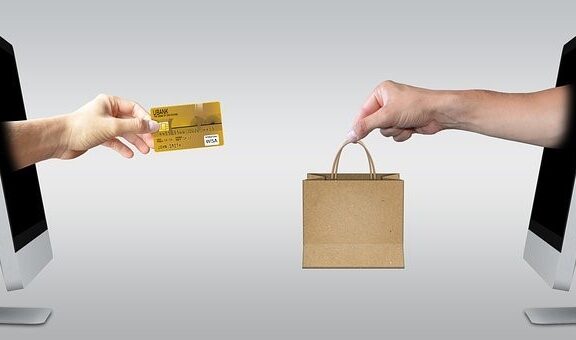All reputable stores now accept card payments on the site or in the app. They may also send a link to the payment page in a messenger or SMS. If they don’t, think twice about whether it’s even worth buying there. And in general, if you’re not even registered with the bank yet, by all means, Login to Your Union Plus Credit Card Account! Only with this card, you will gain a lot of opportunities and you can safely and easily dispose of their funds!
With the Bank Online App, You Can
- Get information about the amount owed and the minimum payment
- Learn about the end date of your interest-free period
- Link your card to your PAY Wallet
- Topup your card and payment services without commissions
- Change the limit and much more.
Payment with A Bank Card
The PayOnline processing center is an official service provider of VISA and MasterCard. With the help of PayOnline more than five million bank cardholders safely and conveniently make payments online. For online payments, you can use bank cards of Visa, Visa Electron, MasterCard, etc. If your card is subscribed to 3D-Secure, your payment will be authorized with a one-time password.
Sensitive payment data is entered and processed at the processing center. No one, not even the seller, can get the bank card details entered by the client, which guarantees the complete safety of his money and personal data. After successful payment, an electronic receipt is sent to the payer’s e-mail, confirming that the payment was made and containing its unique identifier.
How to Prevent and Protect Your Card When Using Online
“Call from The Bank”
The caller introduces himself as a bank security officer and the incoming call number is very similar or duplicates the bank number. Most often, fraudsters call late in the evening, at night, or early in the morning on weekends when a person is asleep and can’t get his bearings quickly. The criminal introduces himself as a bank employee and informs about a suspicious operation, which demands immediate actions from the client. Fraudsters are well acquainted with psychology: they speak quickly and confidently, use professional terms, often include sounds imitating the work of a busy call center as a background. All this helps them gain your trust and make you let your guard down.

How to Prevent It?
Even if the information sounds very believable, it’s better to reassure yourself and call the bank yourself so that you’re communicating accurately with an employee and not the perpetrator. If a familiar bank number pops up on your phone, on no account make a call back to it. Dial the bank’s hotline number manually. The hotline number can be found on the back of your unionpluscard or on the bank’s official website.
“Buying Hand-Me-Downs on the Internet”
If you decide to buy an item by hand or sell an item you don’t need, be careful – scammers often play the role of buyers or sellers. There is an extremely interested buyer who is ready to make any advance payment to your account and asks not only for your card number or phone number but also for a card verification code (three digits on the reverse side, e.g. CVV or CVC). Such an approach must put you on guard, as all you need to know to transfer money is your card number.
If you are purchasing an item by hand, you may be asked for prepayment and card details. If you are faced with a scammer, in the best case you will be left without the money you sent in advance. At worst, if you are asked for all of your card details, you risk being left with no money in your account as well.
How to Prevent It?
Be careful when buying goods from the hand through social networks or special sites. Always try to check the potential buyer or seller by reviews. Communities and services usually have a “black list” (of both buyers and sellers) and moderators. Check the seller’s profile – scammers often create fake pages with minimal information.
“Bank Lottery”
You receive an email or SMS stating that the bank is holding a lottery. You are invited to take a survey using a link, you click, and are taken to a phishing site. You receive an e-mail from the bank suggesting to follow the link, you click and get to a phishing site, thus you risk infecting your computer with a virus that will allow the fraudsters to control it. And especially do not enter your card details.

How to Prevent?
Set the blocking of fake sites in your browser. When paying for purchases on the Internet, check the address of the site. If there is a mismatch with the official site, do not enter the data.
Choose A Store Based on Reviews
At first glance it’s easy: if about the online store there are no reviews all over the Internet, it may be a one-day shop that does not send anything or sell defects. But if there are a lot of reviews, and all of the praise and one-type, it’s also a reason to think: such reviews are written by copywriters, not real customers. It is not always easy to distinguish purchased reviews from real ones, but it is possible:
- they, as a rule, are all signed with the name and surname, often with a photo;
- Do not contain details of the purchase;
- If they do mention flaws, it’s in a way that makes it look like praise. For example: “Delivered in three days instead of two, however, to compensate they made a big discount, I will buy only here!!!”
If All the Reviews from the Store Are Like That, There’s A Good Chance They Aren’t Real
When you see a store with super-low prices, great selection, and great reviews, remember that this often means fraud, not a good place to shop.
Provide Only the Necessary Data When Shopping
What the store needs in order to place an order:
- A phone number and/or email address – the former is usually asked for order confirmation and delivery messages, and the latter for sending an electronic check. Usually, it’s not necessary to provide an email address, but it’s better to do so – a check won’t be superfluous;
- your name and address for delivery, sometimes you may also need a billing address – most often it coincides with the address of registration;
- The foreign store will also need TIN and passport data – this is a requirement of Russian customs.
What the Bank Needs, Through Which the Card Is Paid For:
- card number, its expiration date, CVV2 or CVC2, often also (but not necessarily) – your name and surname in the Latin alphabet, as they are listed on the card.
- If the store asks for anything else, for example, a scan of your passport, your mother’s maiden name, or your username and password from the online bank, there is obviously something wrong with it, and you should not buy there.
Bottom Line
Often a card can be “linked” to a store. If you are already familiar with it and plan to buy there sometimes, it will simplify the process – you won’t have to re-enter all the data every time. It doesn’t mean that the store will be able to charge your card whenever it wants; in any case, you can confirm the purchase with a text message code, fingerprint, or at least a click of a button. And, of course, do not forget to register at Unionplus.capitalone.com! So, we hope now you know that shopping online can be safe but you always need to remember about measures!





